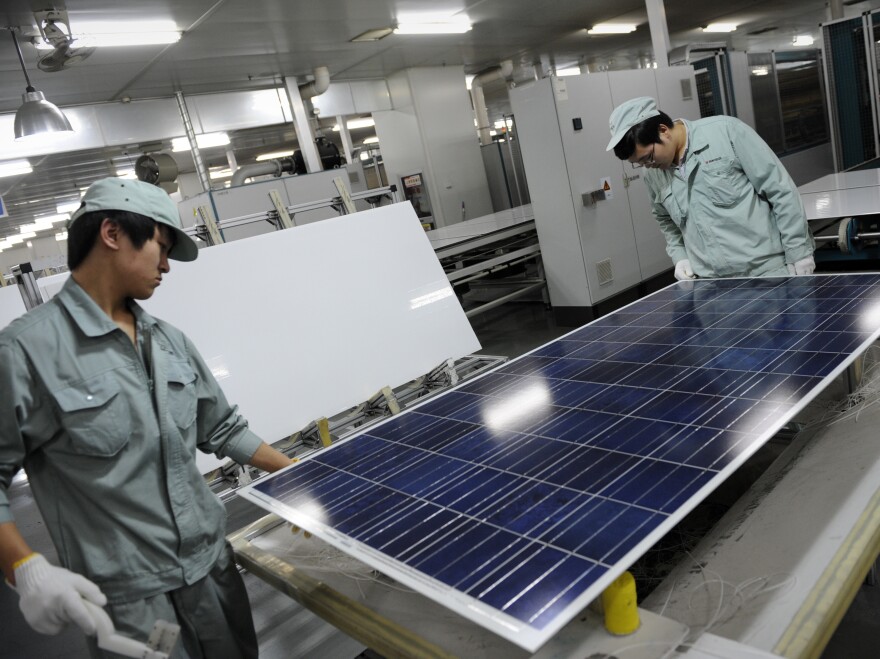In an alarming display of global energy dynamics, China has surged ahead in the clean energy race, securing a staggering $168 billion in foreign investments in just over two years. This comes as the United States, under the Trump administration, clings to fossil fuels, undermining its own potential in the renewable energy sector.
China"s Clean Energy Boom
China is experiencing an unprecedented clean energy boom, having installed more wind turbines and solar panels in 2024 than the rest of the world combined. As reported by The New York Times, this rapid expansion is not merely about environmental responsibility; it is a strategic maneuver to dominate global energy markets. With nearly 700,000 clean energy patents and a manufacturing sector that has become synonymous with solar panels, wind turbines, and electric vehicle technology, China"s commitment to renewable energy is reshaping international alliances.
US Fossil Fuel Strategy Backfires
In stark contrast, the Trump administration"s push for an "energy dominance" agenda prioritizes fossil fuels over sustainable alternatives. This approach includes pressuring allies like Japan and South Korea to invest heavily in natural gas projects, despite the growing consensus on the need for cleaner energy sources. As noted by the U.S. Energy Information Administration, the U.S. remains the largest producer and exporter of oil and gas, but this strategy threatens to lock the nation into a future dependent on fossil fuels.

Fact-checking Trump’s speech on the US environment | CNN Politics
Consequences of Ignoring Climate Science
The implications of these diverging energy strategies are dire. While China invests in renewables, the U.S. is fast-tracking fossil fuel projects, disregarding the alarming realities of climate change. According to PV Magazine, China hit a record 277.17 GW of new photovoltaic installations in 2024, further solidifying its position as a leader in global solar energy production. The scientific consensus warns that unchecked carbon emissions will lead to catastrophic climate events, yet the U.S. administration continues to downplay these concerns.
The Role of Global Partnerships
China"s strategy is also about building alliances through clean energy investments. By establishing significant projects in countries like Brazil and Morocco, it not only supports its domestic industries but also extends its influence in emerging markets. This is a crucial aspect of the global energy landscape that the U.S. risks losing. As highlighted in IEA reports, the world is projected to invest $3.3 trillion in energy transitions by 2025, with renewables dominating. The U.S. must reconsider its energy strategy or face being sidelined in this crucial sector.

Chinese Solar Panel Maker Suntech Goes Bankrupt | 90.5 WESA
Social Justice Implications
The consequences of these energy choices extend beyond economic impacts. Communities across the globe, particularly marginalized groups, will bear the brunt of climate inaction. The pollution from fossil fuels disproportionately affects low-income neighborhoods, exacerbating existing inequalities. A transition to clean energy is not just an environmental imperative; it is a social justice issue. The ongoing neglect of this reality by U.S. policymakers could further entrench these disparities, as those with fewer resources often lack the means to adapt to climate impacts.

![[Video] Massive blackout hits Buenos Aires during intense heat](/_next/image?url=%2Fapi%2Fimage%2Fthumbnails%2Fthumbnail-1767178842442-uldsl-thumbnail.jpg&w=3840&q=75)





![[Video] Gunfire between Iraqi security forces and Sadr militias in Baghdad](/_next/image?url=%2Fapi%2Fimage%2Fthumbnails%2Fthumbnail-1768343508874-4redb-thumbnail.jpg&w=3840&q=75)
